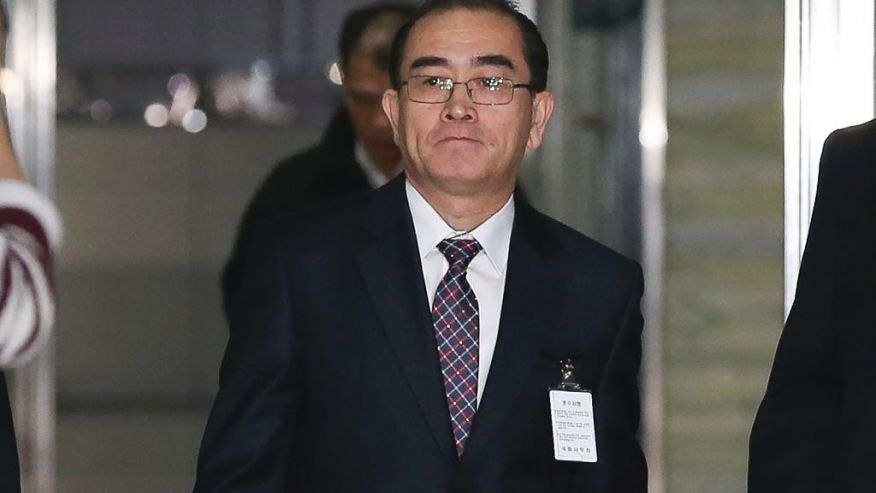A prominent North Korean official has defected to South Korea, and he’s brought a warning for the United States.
Thae Yong-ho, formerly the second-in-command at North Korea’s London embassy, has sought asylum in South Korea, making him one of the most prominent defectors to ever publicly flee Kim Jong-un’s regime. Yong-ho participated in nearly two and a half hours of questioning from South Korean journalists upon his arrival. Although foreign journalists were not permitted to attend, a written transcript was released for media use.
“As long as Kim Jong-un is in power, North Korea will never give up its nuclear weapons, even if it’s offered $1 trillion or $10 trillion in rewards,” Yong-ho said.
North Korea has been working tirelessly toward establishing a functional arsenal of nuclear weapons in recent years, and reports suggest the isolated nation may attain their goal by the end of next year. Sanctions placed on North Korea by Western nations such as the United States have left the North Korean economy in a stranglehold, and many hoped Kim Jong-un would be willing to reconsider his pursuit of nuclear weapons in exchange for financial or humanitarian aid. Yong-ho explained that the North Korean leader would not entertain any such deal, as his strategy relies on establishing nuclear weapons first, then restarting negotiations as a nuclear power.
“Following the ruling party congress in May, Kim Jong-un made it a party policy to finish nuclear development within the earliest time possible,” Yong-ho explained to a South Korean news outlet. “Due to domestic political procedures, North Korea calculates that South Korea and the U.S. will not be able to take physical or military actions to deter North Korea’s nuclear development.”
Yong-ho went on to explain that Kim’s strategy will be to force the United States and other Western powers into changing their tactics when dealing with the nuclear state of North Korea.
“North Korea believes that relentless provocations must shift new (South Korean and U.S.) governments’ policy lines into more stability-focused ones.”
In a speech to the Council on Foreign Relations in New York in October, U.S. Director of National Intelligence James Clapper also said any attempt at discouraging North Korea’s leader from pursuing nuclear weapons would be a “lost cause,” explaining that the only hope would be to try to limit production.
“They are under siege and they are very paranoid. So the notion of giving up their nuclear capability, whatever it is, is a non-starter with them.”
Yong-ho went on to describe the difficult living conditions required of North Korean diplomats. Ambassadors receive a wage equivalent to $900 to $1,100 per month, leaving many desperate to find work outside of their traditional duties. Many choose to live together communally in order to reduce costs. They also undergo near-constant surveillance and often are forced to live with members of their family used as leverage within North Korea. When asked how he managed to escape with his wife and two children, Yong-Ho answered, “It’s a human world, and it’s impossible to monitor someone constantly.”
The North Korean government issued a statement regarding Yong-ho’s defection, calling him “human scum” and accusing him of embezzling state funds and sexually assaulting a minor, prompting him to flee to avoid prosecution. Yong-Ho denied these accusations, stating he began to plan his escape after Kim Jong-un began executing other high-ranking officials, including Kim’s own uncle, Jang Song-thaek, in an effort to tighten his grip on power over the nation.
Already have an account? Sign In
Two ways to continue to read this article.
Subscribe
$1.99
every 4 weeks
- Unlimited access to all articles
- Support independent journalism
- Ad-free reading experience
Subscribe Now
Recurring Monthly. Cancel Anytime.











COMMENTS